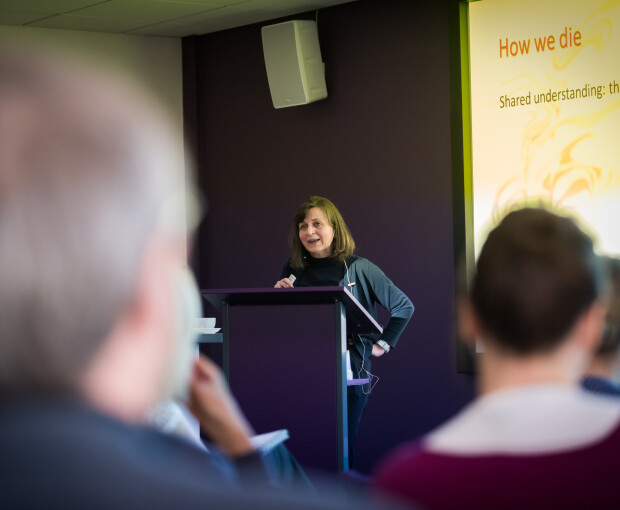We need to prepare people better for dying, says Dr Kathryn Mannix, author and palliative care expert.
Speaking on Friday at LOROS’ conference, Getting It Right for Patients, Dr Mannix told the sold-out audience that the public’s understanding of dying is not shaped by family experience, as used to be the case, but by soap operas and tabloid headlines.
“Dying as entertainment in EastEnders and Emmerdale thrives, but ordinary dying which is the most natural and manageable process, is shrouded in mystery”, said Dr Mannix.
“Attention-grabbing headlines about hospitals are prejudicing public opinion. We need to help people understand more about dying so they are not so fearful. We need to treat dying a bit like pregnancy – with guidance and clinical support to help people know what to expect”, concluded Dr Mannix.
LOROS consultant Professor Christina Faull echoed this in her speech to the conference, pointing to the enormous impacts loss and grief has on people and on wider society.
“Nationally nearly 80% of 11-16 year-olds experience at least one close relative or friend dying yet most schools don’t include bereavement in their curriculum. 1 in 29 young people experience the death of a parent or sibling. And as many as a quarter of all GP appointments relate to loss.
“We need to help people make sense of grief and dying. As our population ages we will start to see a pronounced increase – we must prepare people better for what’s to come”, added Professor Faull.
Other speakers included Times columnist and best-selling author Matthew Syed who talked about the importance of improving care by learning from mistakes.
Using the aviation industry as an example where data received from the black box is used to understand and improve safety rather than apportion blame, Matthew said, “When people are individually held accountable they will either self-justify or conceal and that effectively torpedoes any learning."
“Healthcare is more complex than flying a plane but that makes learning even more important. I don’t think there are many areas more crucial than end of life care” added Matthew.
In addition Rodger Charlton, professor of undergraduate primary care education at the University of Leicester, talked about the importance of doctors retaining compassion, whilst Pip Hardy spoke about giving patients a voice and the power of story-telling in supporting patients.





